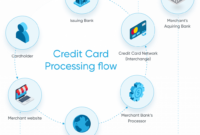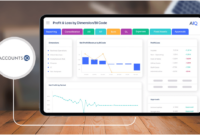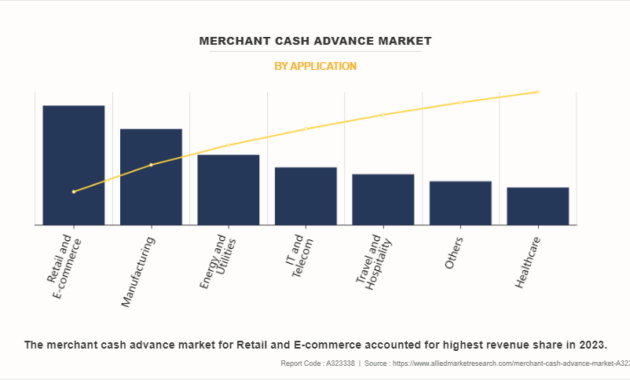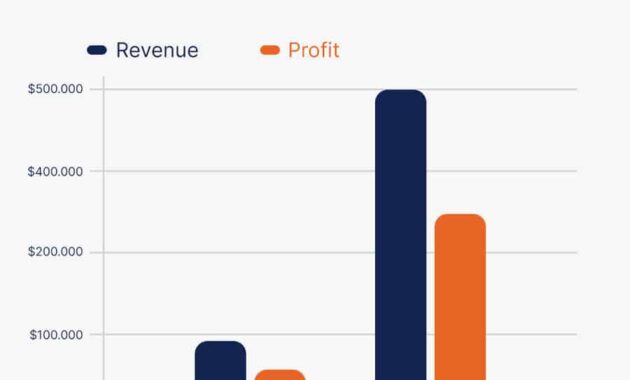Introduction
Have you ever wondered how much it costs to process a credit card transaction? If you accept credit cards as payment, you’re likely incurring some type of fee. The average cost of processing a credit card transaction in the US is roughly 2.9%, plus $.30. While this may seem like a small amount, it can add up quickly, especially for businesses that process a high volume of transactions.
In this article, we’ll take a closer look at the different factors that influence credit card processing fees and how you can minimize them. We’ll cover everything from interchange fees to PCI compliance fees, so you can make informed decisions about how to accept credit cards.
How Credit Card Processing Works
Before we dive into the details of credit card processing fees, it’s helpful to understand how credit card processing works. When a customer makes a purchase using a credit card, the transaction is routed through a series of networks and processors. These networks and processors handle the authorization and settlement of the transaction, and they charge fees for their services.
The most important network in the credit card processing process is the payment network. The payment network is responsible for routing the transaction from the merchant’s point of sale to the customer’s bank. The four major payment networks in the US are Visa, MasterCard, American Express, and Discover.
Once the transaction has been authorized by the payment network, it is sent to the acquiring bank. The acquiring bank is the bank that has issued the merchant’s credit card processing account. The acquiring bank then sends the transaction to the issuing bank, which is the bank that has issued the customer’s credit card.
The issuing bank then authorizes the transaction and sends the funds to the acquiring bank. The acquiring bank then deposits the funds into the merchant’s account. This process typically takes a few days, however, some merchants may be able to access the funds more quickly through a cash advance program.
Factors that Influence Credit Card Processing Fees
The cost of processing a credit card transaction is influenced by a number of factors, including:
How to Minimize Credit Card Processing Fees
There are a number of things you can do to minimize your credit card processing fees. Here are a few tips:
Conclusion
Credit card processing fees are a necessary expense for businesses that accept credit cards as payment. However, there are a number of things you can do to minimize these fees. By understanding the factors that influence credit card processing fees and following the tips outlined in this article, you can save money on your credit card processing costs.
How Much is a Credit Card Processing Fee?
If you’re a business owner, you know that accepting credit cards is a must. But did you know that there are fees associated with processing credit card payments? These fees can vary depending on a number of factors, which we’ll explore in this article.
Factors Affecting Fees
The cost of processing a credit card payment is determined by a number of factors, including:
-
Transaction type: The type of transaction you’re processing will affect the fee. For example, card-present transactions, which are transactions where the customer is physically present and swipes their card, typically have lower fees than card-not-present transactions, which are transactions where the customer is not physically present and enters their card information online or over the phone.
-
Processing platform: The platform you use to process credit card payments will also affect the fee. Some platforms, such as PayPal and Square, charge a flat fee per transaction, while others, such as Authorize.Net and Stripe, charge a percentage of the transaction amount.
-
Interchange fees: Interchange fees are fees that are charged by the card issuer to the merchant’s bank. These fees are typically a percentage of the transaction amount, and they can vary depending on the type of card being used and the merchant’s risk profile.
-
Payment gateway fees: Payment gateway fees are fees that are charged by the payment gateway provider. These fees are typically a flat fee per transaction, and they can vary depending on the payment gateway provider and the merchant’s risk profile.
Conclusion
The cost of processing a credit card payment can vary significantly depending on a number of factors. By understanding the factors that affect fees, you can choose the right processing platform and payment gateway for your business and avoid unnecessary costs.
How Much Is a Credit Card Processing Fee?
Nowadays, it seems like everybody and their grandmother accepts credit cards. But have you ever wondered how much it costs businesses to process those payments? The answer is: it depends. Credit card processing fees can vary widely depending on a number of factors, including the type of card, the amount of the transaction, and the payment processor.
But Just to give a ballpark figure, the average credit card processing fee is around 2-3%. So, for a $100 transaction, the business would pay $2-$3 in processing fees.
Of course, there are ways to reduce credit card processing fees. Businesses can negotiate with their payment processor for a lower rate, and they can also choose to process transactions through a payment gateway that offers lower fees. Additionally, businesses can pass on some or all of the processing fees to their customers by adding a surcharge to transactions.
Interchange Fees
Interchanges fees are a major component of credit card processing fees. Interchange fees are essentially the fees that banks charge each other to process credit card transactions. These fees vary based on the type of card, the transaction amount, and other factors. For example, interchange fees are typically higher for premium cards, such as rewards cards, than they are for standard cards. Similarly, interchange fees are typically higher for large transactions than they are for small transactions.
Assessment Fees
Assessment fees are another type of credit card processing fee. Assessment fees are charged by payment networks, such as Visa and Mastercard, to cover the costs of operating the payment network. Assessment fees are typically a flat fee per transaction, regardless of the transaction amount.
In addition to interchange fees and assessment fees, there are a number of other fees that can be associated with credit card processing such as:
- Monthly gateway fees
- PCI compliance fees
- Chargeback fees
- Fraud prevention fees
- Refund processing fees
The total cost of credit card processing can vary significantly depending on the business’s individual circumstances. Businesses should compare the fees and services of different payment processors before choosing one.
How Much Is a Credit Card Processing Fee?
In today’s digital age, credit cards have become an indispensable part of our lives, streamlining transactions and offering convenience at every turn. However, behind the scenes, there’s a hidden cost associated with every credit card swipe: the processing fee. So, how much are we paying to make those purchases?
Interchange Fees
Interchange fees are a type of processing fee paid by the merchant’s bank to the cardholder’s bank. These fees are typically a percentage of the transaction amount, ranging from 1% to 3%. The size of the interchange fee varies depending on the type of card used, the amount of the transaction, and the industry in which the merchant operates.
Processor Fees
Payment processors, the middlemen between merchants and banks, also charge a fee for processing transactions. These fees can be either a flat fee or a percentage-based fee. Flat fees typically range from $0.05 to $0.30 per transaction, while percentage-based fees are typically around 2% to 3%.
Assessment Fees
Assessment fees are charged by card networks, such as Visa and Mastercard, to cover the costs of maintaining and operating the payment system. These fees are typically a fixed amount per transaction, regardless of the amount of the purchase.
Other Fees
In addition to interchange fees, processor fees, and assessment fees, merchants may also encounter a variety of other fees, such as:
- PCI compliance fees: These fees are charged by payment processors to help merchants meet the Payment Card Industry Data Security Standard (PCI DSS), which protects customer data from fraud and theft.
- Chargeback fees: These fees are charged by payment processors when a customer disputes a transaction and requests a refund.
- Foreign transaction fees: These fees are charged by payment processors when a transaction is made in a currency other than the processor’s base currency.
How to Reduce Credit Card Processing Fees
While credit card processing fees are a necessary cost of doing business, there are a few things merchants can do to reduce these costs:
- Negotiate with your payment processor: Don’t be afraid to negotiate with your payment processor to get the best possible deal on processing fees.
- Opt for flat fees: If you process a high volume of transactions, opting for a flat fee can be more cost-effective than a percentage-based fee.
- Encourage customers to use debit cards: Debit cards typically have lower processing fees than credit cards.
- Offer discounts for cash payments: Offering a small discount for cash payments can encourage customers to use this method, which has no processing fees.
By understanding the different types of credit card processing fees and how to reduce them, merchants can save money and keep their businesses running smoothly.
How Much Is a Credit Card Processing Fee?
Coughing up cash for swiping plastic is as commonplace as a Netflix subscription these days, but have you ever wondered how much of that transaction goes to the person or business you’re buying from? The answer: not as much as you might think. Enter the world of credit card processing fees, a labyrinthine landscape that can make understanding your monthly statement feel like deciphering hieroglyphics.
Merchants, those who accept credit cards, pay a processing fee every time a customer swipes plastic. This fee is a percentage of the transaction amount, typically ranging from 1.5% to 3.5%, but it can vary depending on the type of card, the merchant’s industry, and the processing company. So, if you buy a $100 item with a credit card, the merchant could be paying anywhere from $1.50 to $3.50 in processing fees.
Gateway Fees
Payment gateways facilitate communication between merchants and processors, and they charge additional fees for their services. These fees can be a flat rate per transaction, a percentage of the transaction amount, or a combination of both. The average gateway fee is around $0.10 to $0.30 per transaction, but it can vary depending on the gateway provider and the merchant’s volume.
Interchange Fees
Interchange fees are the fees that banks charge each other to process credit card transactions. These fees are typically passed on to merchants by their processors, and they can vary depending on the type of card, the merchant’s industry, and the issuing bank. Interchange fees typically range from 0.5% to 2% of the transaction amount, but they can be higher for certain types of cards, such as rewards cards.
Network Fees
Network fees are the fees that credit card networks, such as Visa and Mastercard, charge to process transactions. These fees are typically passed on to merchants by their processors, and they can vary depending on the type of card and the merchant’s industry. Network fees typically range from 0.1% to 0.25% of the transaction amount, but they can be higher for certain types of cards, such as rewards cards.
Assessment Fees
Assessment fees are the fees that credit card associations, such as Visa and Mastercard, charge to merchants to cover the costs of operating the payment network. These fees are typically passed on to merchants by their processors, and they can vary depending on the type of card and the merchant’s industry. Assessment fees typically range from 0.05% to 0.15% of the transaction amount, but they can be higher for certain types of cards, such as rewards cards.
Other Fees
In addition to the fees listed above, merchants may also be charged a variety of other fees, such as:
- PCI compliance fees: These fees are charged by processors to help merchants maintain compliance with the Payment Card Industry Data Security Standard (PCI DSS).
- Chargeback fees: These fees are charged by processors when a customer disputes a transaction and requests a chargeback.
- Retrieval fees: These fees are charged by processors when a merchant requests a copy of a transaction receipt.
- Dispute fees: These fees are charged by processors when a merchant disputes a chargeback.
How to Reduce Credit Card Processing Fees
There are a number of things that merchants can do to reduce their credit card processing fees, including:
- Negotiating with their processor: Merchants can negotiate with their processor to get a lower rate on their processing fees.
- Choosing a processor with low fees: There are a number of processors that offer low fees, so it’s important to shop around before choosing one.
- Accepting only certain types of cards: Merchants can choose to accept only certain types of cards, such as debit cards or prepaid cards, which typically have lower processing fees than credit cards.
- Increasing their sales volume: Merchants can increase their sales volume to qualify for lower processing fees.
- Offering discounts for cash: Merchants can offer discounts for customers who pay with cash, which can encourage customers to use cash instead of credit cards.
How Much Is a Credit Card Processing Fee?
If you’re a business owner, you know the importance of accepting credit cards. But did you know that credit card processing fees can eat into your profits? The average processing fee for a credit card transaction is around 2%, but it can vary depending on the type of card, the amount of the transaction, and the payment processor you use.
Minimizing Fees
There are a few things you can do to minimize credit card processing fees:
Negotiate Lower Interchange Rates
Interchange rates are the fees that banks charge each other to process credit card transactions. You can negotiate lower interchange rates with your payment processor.
Choose the Right Processing Platform
There are a variety of payment processing platforms available, each with its own fee structure. Compare the fees of different platforms before choosing one.
Leverage Discounts for Volume Transactions
Some payment processors offer discounts for businesses that process a high volume of transactions. If you process a lot of credit card payments, ask your payment processor about any discounts that may be available.
Understanding Credit Card Processing Fees
What Are Credit Card Processing Fees?
Credit card processing fees are the charges that businesses pay to process credit card transactions. These fees cover the cost of the transaction, including the cost of the interchange, the cost of the payment processor, and the cost of the credit card network.
How Are Credit Card Processing Fees Calculated?
Credit card processing fees are typically calculated as a percentage of the transaction amount. The percentage varies depending on the type of card, the amount of the transaction, and the payment processor.
What Are the Different Types of Credit Card Processing Fees?
There are a variety of different types of credit card processing fees, including:
- Interchange fees: These are the fees that banks charge each other to process credit card transactions.
- Payment processor fees: These are the fees that payment processors charge businesses to process credit card transactions.
- Credit card network fees: These are the fees that credit card networks charge businesses to process credit card transactions.
How Can You Reduce Credit Card Processing Fees?
There are a few things that businesses can do to reduce credit card processing fees, including:
- Negotiating lower interchange rates: Businesses can negotiate lower interchange rates with their banks.
- Choosing the right payment processor: There are a variety of payment processors available, each with its own fee structure. Businesses should compare the fees of different payment processors before choosing one.
- Leveraging discounts for volume transactions: Some payment processors offer discounts for businesses that process a high volume of transactions. Businesses that process a lot of credit card payments should ask their payment processor about any discounts that may be available.
Conclusion
Credit card processing fees can be a significant expense for businesses. By understanding what these fees are and how they are calculated, businesses can take steps to reduce their costs.












